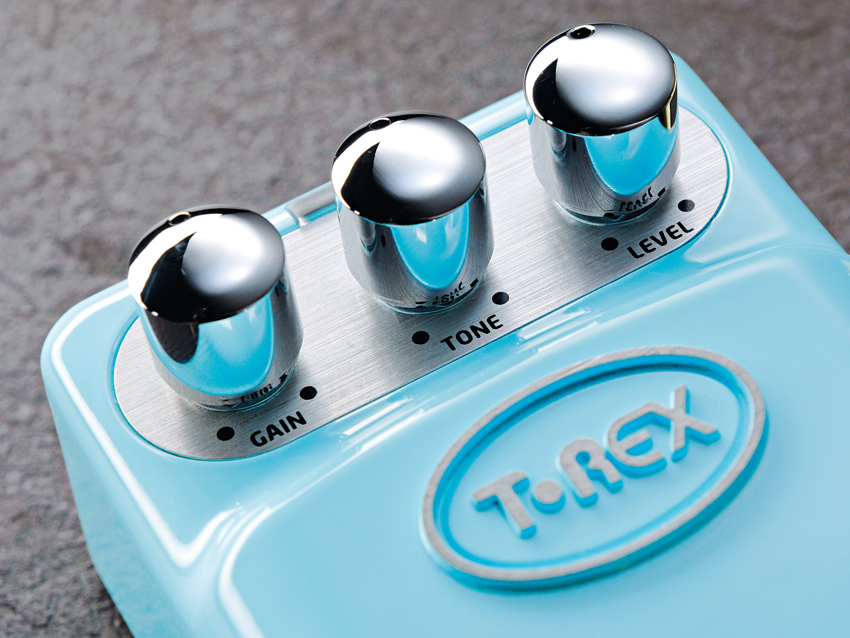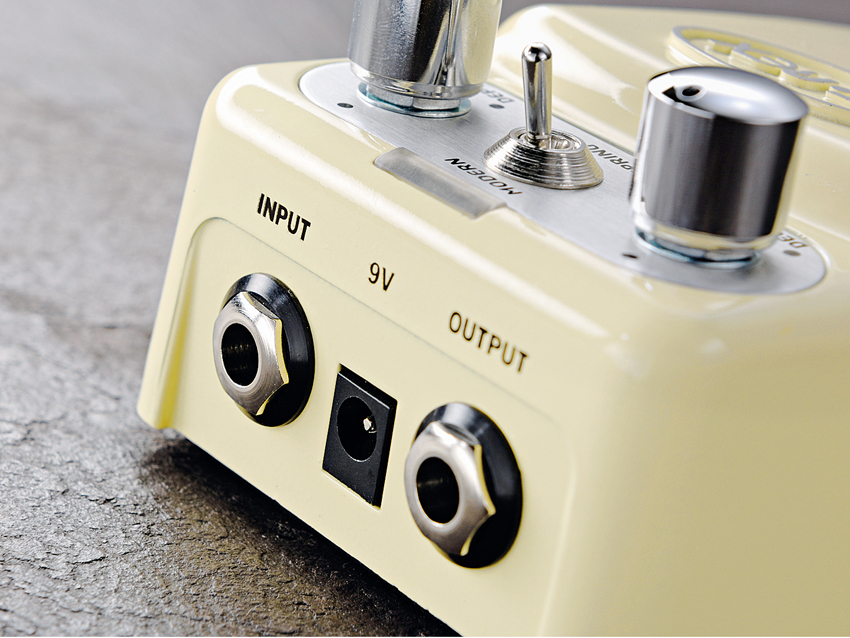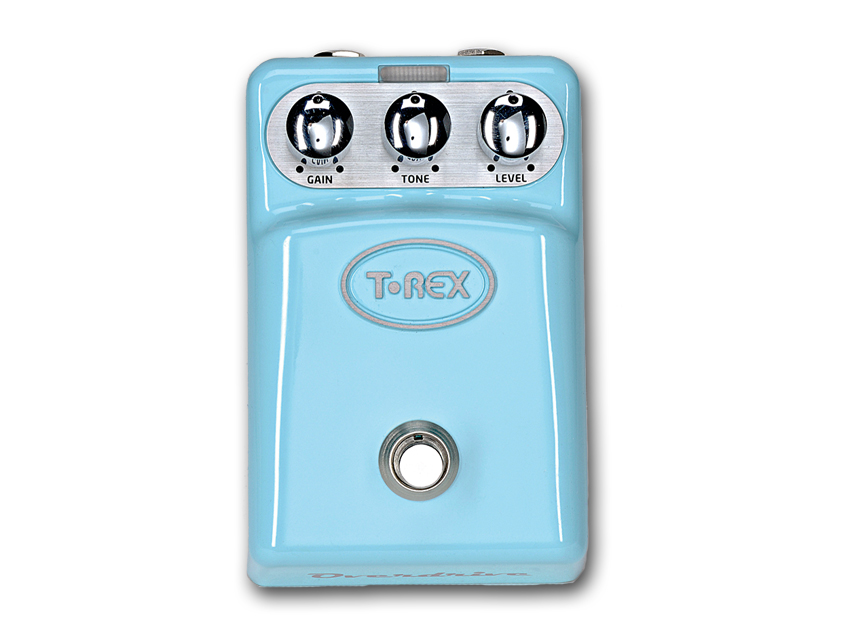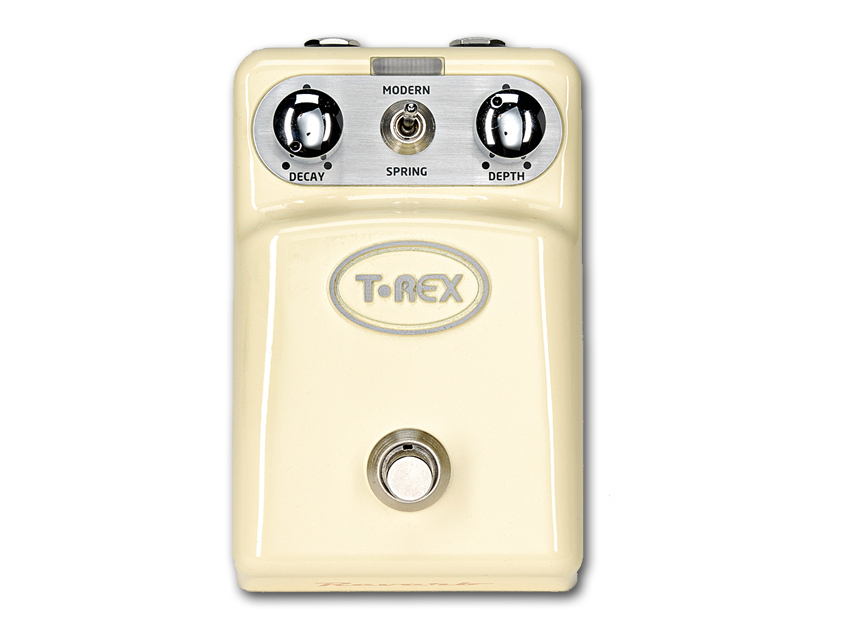MusicRadar Verdict
Good sound quality in affordable, solidly-built pedals.
Pros
- +
Sound quality. Pleasing design. Simplicity of the Reverb pedal.
Cons
- -
Battery changing is a bit fiddly.
MusicRadar's got your back

T-Rex ToneBugs

T-Rex ToneBugs

T-Rex ToneBugs

T-Rex ToneBugs
Denmark-based T-Rex has been making high-quality stompboxes for quite some time now, many of which grace the pedalboards of the famous. But while fame and the wealth that comes with it isn't a prerequisite for owning one of these pedals, it certainly helps as they aren't exactly cheap.
Responding to the fact that the high price tag may have been off-putting for some, and that some of its pedals are quite complex, T-Rex has introduced a new range of more affordable pedals - the ToneBug series.
The company describes them as "great-sounding pared-down pedals". The aim appears to be to make easy-to-use pedals with fewer features than the top-end pedals, but without compromising tone. The first two ToneBugs offer Overdrive and Reverb respectively.
Solid build
With an appealing metal body featuring nicely curved edges, the two pedals feel solid and robust underfoot. Power comes from a 9V battery tucked away in an easily accessed compartment, with a hinged plastic lid recessed into the rubber of the pedal base.
Should you wish to run a ToneBug from a power adaptor, there's a standard socket situated between the input and output jacks on the front side. Both pedals accept either a 9V or a 12V supply, so the ToneBugs will help you make the most of your available outlets if you're using something like T-Rex's own Fuel Tank or a Voodoo Lab Pedal Power 2.
Controls are located in a recessed area at the top of the pedal and consist of chrome knobs with single black marker spots, which are clearly visible against the brushed aluminium backplate.
Sounds
The Overdrive has gain, tone and level knobs and can go from a level that's fine to use as a clean boost, through to a crunchy valve-like overdrive. This isn't too saturated, but will complement a clean amp, or add some extra punch to a dirty one without compromising the core tone.
Letting your own tone come through is no problem either, as the tone control ushers in quite subtle changes until the very last segment of its travel, at which point you can dial in some biting treble should you need it.
The Reverb pedal offers a choice of two reverb types, modern and spring, selected via a switch between the two knobs controlling the reverb depth and decay. These, in the simplest terms, respectively govern how much reverb you get and how long it lasts.
The modern setting gives you a real sense of space around your sound, with careful juxtaposition of the knobs taking you into various sized real-world spaces - although things can get a bit unreal as you start maxing out the controls.
As for the spring setting, in our opinion no digital pedal is going to exactly reproduce the electromechanical complexity and depth of a real Accutronics spring reverb, the likes of which you'd find in a Fender amp.
But this one comes close, and is well worth an audition for those of you who want reverb, but lack that facility in your particular amp of choice.
Overview
If these first two offerings are anything to go by, the ToneBug series pedals could well become solid favourites with many players - they're not too expensive, rugged enough to take abuse and they sound great.
The Overdrive enters an already overcrowded market but is a viable contender there for its no-nonsense, light-to-mid-gain core tone and appeal.
The Reverb stands slightly at odds from the market, rooted in welcome simplicity for guitarists' everyday needs, instead of offering endless options for recording and mixing tasks that six stringers don't need. Good stuff.
Trevor Curwen has played guitar for several decades – he's also mimed it on the UK's Top of the Pops. Much of his working life, though, has been spent behind the mixing desk, during which time he has built up a solid collection of the guitars, amps and pedals needed to cover just about any studio session. He writes pedal reviews for Guitarist and has contributed to Total Guitar, MusicRadar and Future Music among others.
“Gloriously adorned with a gold edge burst finish over a gold paisley and sparkle top”: Gretsch unveils the Paisley Penguin – a rare bird that growls – and the Honey Dipper Special, a resonator for all your roots rock manoeuvres
“It’s radical. It’s like magic. I get chills”: How Rick Rubin’s philosophy of chance led System of a Down to the first metal masterpiece of the 21st century
“A guitar with the same style and massive sound Eddie Van Halen created all at an affordable price”: EVH Gear reimagines the Wolfgang Standard as a high-performance shredder with a TOM bridge










